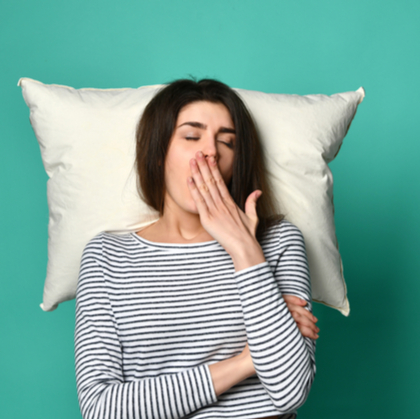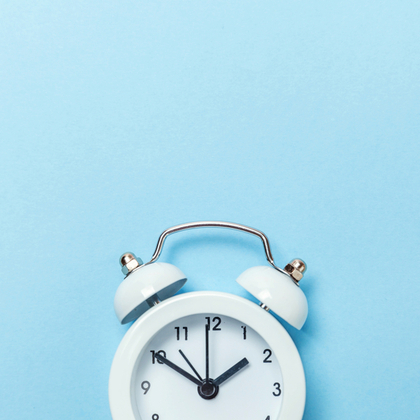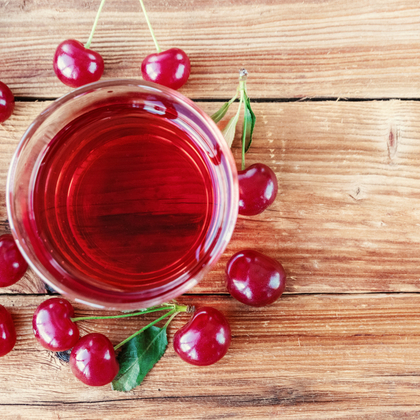
Sweating is a healthy way the body regulates temperature. Most people will sweat during exercise, in a sauna, or in warm climates. It’s also very common to sweat at night if your bedding or room is too hot.
Night sweats are another matter entirely. These episodes of excessive perspiration often soak bedding and require a change of sheets or clothes. Unlike simple overheating due to environmental factors, like temperature, an underlying health condition usually triggers night sweats.
Night sweats can be a sensitive and bothersome issue, especially if you have a bed partner. They can also diminish sleep quality and cause serious discomfort. Fortunately, there are many ways to reduce and manage sweating at night.
First, however, it’s important to understand and determine why you might be sweating in sleep, as we outline below.
Why do I keep sweating in my sleep?
The body’s temperature regulation system is complex and multifaceted, making it challenging to identify exactly what leads to sweating in sleep. Still, the most common causes include anxiety, menopause, and diabetes.

Sweating in sleep causes
Anxiety
Anxiety and panic attacks are often associated with night sweats.1 Night sweats can occur when the body’s stress response – characterised by changes in heart rate, metabolism, and body temperature – has been activated. Episodes are more common when you experience nightmares, which trigger a physiological response to fear.
Night sweats themselves can also lead to anxiety, which can perpetuate a negative feedback loop and contribute to even greater stress. And since sleep and emotional health has a bidirectional relationship, increased anxiety often means an increased risk of sleeplessness.
Menopause and sleep
Menopause occurs twelve months after a woman’s final period. The hormonal changes that happen to the hormones oestrogen and progesterone in the years leading up to menopause – also referred to as perimenopause – can lead to a range of physical and emotional symptoms.
Collectively known as vasomotor (blood vessel) symptoms, hot flashes and night sweats are often considered to be the most bothersome symptoms of menopause, affecting up to 85 per cent of women.2
Hot flushes can happen at any point of the day or night and are often described as an intense and sudden feeling of heat that radiates throughout the body.
A number of women report higher incidents of insomnia and sleeping issues throughout perimenopause and menopause.3 Although many factors can lead to sleep disruptions at this time, night sweats are a significant contributor to the problem.
Sweating and diabetes
Sweating in sleep may also be caused by low blood glucose, which can happen in those taking diabetes medications or insulin. When your blood glucose dips too low, your body produces excess adrenaline, leading to sweating.4
Other causes of night sweats
- Alcohol, caffeine, or drug use4
- Some medications, such as antidepressants, painkillers (aspirin), and steroids5
- Infections – bacterial and fungal infections, human immunodeficiency virus (HIV), and tuberculosis6
- A harmless condition called hyperhidrosis, which leads to excessive, chronic sweating7
When should I be concerned about night sweats?
Since sleep is such a vital pillar of good health, not getting enough of it due to night sweats can quickly affect your physical, emotional, and cognitive health.
If you experience frequent night sweats that interfere with your sleep and daily life, you should always consult your GP. Your doctor may refer you for tests to identify the root cause of the issue.
How can I stop sweating in sleep?
Although treatment for night sweats will vary from person to person, changes to your environment, behaviour, and medication are usually recommended.
Make environmental changes
While your sleeping environment isn’t responsible for night sweats, it can certainly make them worse. Adjusting your bedroom, bedding, and sleeping attire may help minimise the frequency and severity of episodes.
You may want to consider sleeping in a cooler bedroom – investing in a fan, air conditioning appliance, or cracking a window - using breathable clothing and bedding, placing an ice pack under your pillow, or using a cool flannel on your face before bed.
Avoid alcohol, caffeine, and spicy foods
Alcohol, caffeine, and spicy foods can spike your body temperature and cause sweating, so try to avoid them, especially in the evening.
Consider natural supplements
To manage anxiety at night, you may want to consider supplementing with Magnesium, St John’s Wort, Theanine and Lemon Balm, Valerian, or 5-HTP.
If you experience night sweats in perimenopause, you may wish to try Sage or Soya Isoflavones, which many women find helpful.
Relaxation techniques
Practising relaxation techniques, such as meditation, yoga, or gratitude journaling, could make it easier to fall asleep if you struggle with stress and anxiety. Evidence also reports that deep, controlled breathing may significantly reduce night sweats in menopausal women.8
Cognitive Behavioural Therapy (CBT)
CBT is a talking therapy most commonly used for mental health conditions, like anxiety and depression. It aims to reframe negative thoughts to allow for emotional processing and healing.
CBT for insomnia (CBT-i) has shown promise in treating sleep problems, especially amongst menopausal women.9
Research suggests CBT may be effective at reducing the severity and frequency of hot flushes and night sweats in menopausal women.10
Medication
If an existing medication is behind your sweating in sleep, then changing the dose, prescription, or even coming off it altogether may improve or resolve your night sweats.
Blood glucose control medication is the best way to manage night sweats triggered by low blood glucose. Your GP can help you adjust your medication.
Sweating a little at night is nothing unusual. But experiencing night sweats can be bothersome and uncomfortable. Although there are many behavioural and environmental changes you can make to improve your symptoms, always chat to your GP if you’re concerned about your sweating in sleep.
To learn more about supporting your sleep hygiene, take a look around our dedicated Sleep Health Hub.
References:
- Mold JW, Mathew MK, Belgore S, DeHaven M. (2002) Prevalence of night sweats in primary care patients: an OKPRN and TAFP-Net collaborative study. J Fam Pract. 51(5): 452-6.
- Ohayon MM. (2006) Severe hot flashes are associated with chronic insomnia. Arch Intern Med. 166(12): 1262-8.
- Baker, F. C., de Zambotti, M., Colrain, I. M., & Bei, B. (2018). Sleep problems during the menopausal transition: prevalence, impact, and management challenges. Nature and science of sleep, 10, 73–95.
- nhs.uk. 2021. Low blood sugar (hypoglycaemia). [ONLINE] Available at: <https://www.nhs.uk/conditions/low-blood-sugar-hypoglycaemia/>
- nhs.uk. 2021. Night sweats. [ONLINE] Available at: https://www.nhs.uk/conditions/night-sweats/
- MSD Manual Professional Edition. 2021. Hyperhidrosis - Dermatologic Disorders - MSD Manual Professional Edition. [ONLINE] Available at: https://www.msdmanuals.com/en-gb/professional/dermatologic-disorders/sweating-disorders/hyperhidrosis#v963302
- Baker, F. C., de Zambotti, M., Colrain, I. M., & Bei, B. (2018). Sleep problems during the menopausal transition: prevalence, impact, and management challenges. Nature and science of sleep, 10, 73–95.
- Encyclopedia, M., 2021. Hyperhidrosis: MedlinePlus Medical Encyclopedia. [ONLINE] Medlineplus.gov. Available at: https://medlineplus.gov/ency/article/007259.htm
- Viera AJ, Bond MM, Yates SW. (2003) Diagnosing night sweats. Am Fam Physician, 67(5): 1019-24.
- Ayers B, Smith M, Hellier J, Mann E, Hunter MS.(2012) Effectiveness of group and self-help cognitive behavior therapy in reducing problematic menopausal hot flushes and night sweats (MENOS 2): a randomized controlled trial. Menopause. 19(7): 749-59.
Related Posts

Olivia
Olivia Salter has always been an avid health nut. After graduating from the University of Bristol, she began working for a nutritional consultancy where she discovered her passion for all things wellness-related. There, she executed much of the company’s content marketing strategy and found her niche in health writing, publishing articles in Women’s Health, Mind Body Green, Thrive and Psychologies.
View More



